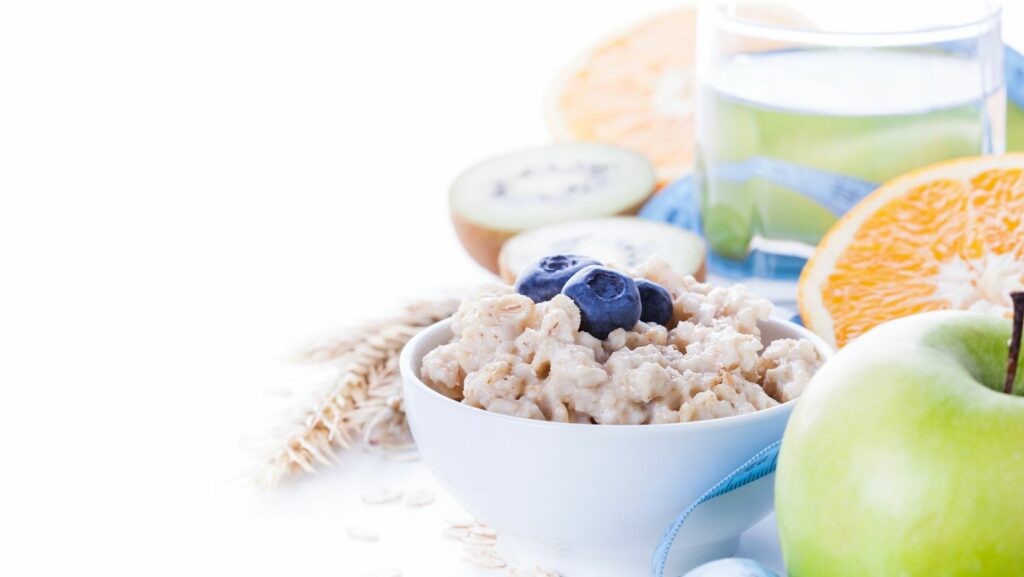When it comes to crushing workouts and smashing personal records, nutrition plays a starring role. Think of it as the secret sauce that fuels athletes and weekend warriors alike. Without the right fuel, even the most dedicated gym-goer might find themselves running on empty—like a car without gas, but with more sweat and fewer wheels.
Sport And Exercise Nutrition
Nutrition fuels athletic performance and contributes to overall fitness success. Optimizing dietary choices helps athletes and gym-goers maximize their potential.
Importance Of Nutrition In Sports
Proper nutrition impacts performance significantly. Quality food intake supports energy levels and recovery times. A strong diet enhances muscle strength and endurance during workouts. Dehydration can hinder physical performance, making hydration essential. Regularly consuming nutrient-rich foods leads to improved focus and reduced injury risk. Athletes face increased demands, making strategic eating crucial for sustained energy throughout training.
Key Nutrients For Athletes
Athletes require a variety of nutrients to excel. Carbohydrates provide the primary energy source, fueling intense workouts. Proteins play a vital role in muscle repair and growth, essential for recovery. Healthy fats support prolonged energy and hormone production. Vitamins and minerals contribute to immune function and overall health. Consuming a balanced diet with whole grains, lean meats, nuts, fruits, and vegetables ensures athletes receive necessary nutrients. Hydration remains equally important, with water regulating body temperature and transporting nutrients.
Nutritional Requirements For Different Sports
Nutrition varies significantly across different sports, each requiring specific dietary strategies to optimize performance.
Endurance Sports
Endurance athletes depend heavily on carbohydrates for fuel. Carbohydrates provide readily available energy essential for prolonged activities like running, cycling, or swimming. Consuming complex carbohydrates such as whole grains, fruits, and vegetables before events maximizes glycogen stores. Post-exercise, protein plays a vital role in muscle recovery and repair. Diets should also incorporate healthy fats for sustained energy release. Hydration remains critical, as even minor dehydration can impair performance.
Strength Sports
Strength athletes necessitate a protein-rich diet to support muscle growth and recovery. Lean meats, eggs, and plant-based proteins serve as excellent sources. Additionally, consuming carbohydrates fuels energy for intense workouts. Whole grains and starchy vegetables are beneficial pre-workout snacks. Healthy fats should not be overlooked; they assist in hormone production and overall energy levels. Maintaining adequate hydration also facilitates optimal physical performance during strength training sessions.
Team Sports
Team athletes require a balanced intake of carbohydrates, proteins, and fats for peak performance. Carbohydrates supply the quick energy needed for short bursts of activity that characterize team sports like soccer and basketball. Incorporating high-quality proteins aids muscle repair, while fats contribute to sustained energy during prolonged play. Proper hydration strategies are essential, especially in high-intensity games, to avoid performance dips. Regular meal timing and nutrient-rich snacks can enhance focus and endurance throughout matches.
Pre-Exercise Sport and Exercise Nutrition
Pre-exercise nutrition plays a vital role in optimizing performance and ensuring athletes are well-prepared for their activities. Strategic eating enhances energy levels and supports endurance during workouts.
Carbohydrate Loading
Carbohydrate loading serves to maximize glycogen stores in muscles. Athletes often implement this strategy before endurance events lasting longer than 90 minutes. Increasing carbohydrate intake to 8-12 grams per kilogram of body weight over several days can significantly improve performance. Foods such as pasta, rice, and fruits provide essential carbohydrates. Consuming these foods 1-3 hours before an event can give muscles the fuel needed for sustained effort.
Hydration Strategies
Hydration strategies are critical for athletes to maintain peak performance. Drinking at least 500-600 milliliters of water 2-3 hours before exercise ensures adequate hydration levels. During workouts, fueling with electrolyte drinks can replenish lost minerals and prevent fatigue. A guideline suggests consuming 200-300 milliliters every 15-20 minutes while exercising. Post-exercise, rehydrating with water or sports drinks aids recovery and restores fluid balance. Maintaining good hydration can enhance focus and physical output during activities.
During Sport and Exercise Nutrition
During exercise, proper nutrition plays a pivotal role in sustaining energy levels and enhancing performance. Athletes must consider various nutritional aspects to maintain endurance and strength throughout their activities.
Energy Sources
Carbohydrates serve as the primary energy source during exercise. Glycogen, stored in muscles and the liver, fuels physical activity. Consuming 30-60 grams of carbohydrates every hour during prolonged endurance activities supports sustained energy levels. This replenishment can come from energy gels, sports drinks, or bananas. Additionally, utilizing fats as a secondary energy source can enhance endurance during extended workouts. Appropriate macronutrient ratios help optimize performance and energy availability throughout challenging sessions.
Electrolyte Balance
Maintaining electrolyte balance is crucial during exercise to prevent dehydration and muscle cramps. Electrolytes, such as sodium, potassium, and magnesium, regulate fluid levels and muscle contractions. Consuming electrolyte-rich drinks during prolonged exercise helps replenish lost minerals. An intake of 500-700 milligrams of sodium hourly can effectively prevent hyponatremia. Additionally, athletes should monitor their sweat rates to assess electrolyte needs, ensuring optimal hydration strategies align with performance goals.
Post-Exercise Recovery Nutrition
Post-exercise recovery nutrition plays a vital role in facilitating muscle recovery and replenishing energy stores. Athletes must consider their post-exercise meals to maximize benefits.
Importance Of Recovery Meals
Recovery meals significantly impact muscle recovery and overall performance. Proper intake of nutrients contributes to muscle repair, glycogen replenishment, and immune function. A focus on post-workout nutrition reduces muscle soreness and enhances recovery times. Consuming nutrient-dense meals helps athletes return to training more effectively. Including carbohydrates and protein in recovery meals aids in re-establishing energy balance and muscle synthesis.
Timing And Composition Of Recovery Nutrition
The timing of recovery nutrition is crucial for achieving optimal results. Ideally, athletes should consume a recovery meal within 30 minutes after exercise. This timeframe allows for quick muscle recovery and glycogen replenishment. A combination of carbohydrates and proteins is recommended to support these processes. For every kilogram of body weight, consuming 1.0-1.5 grams of carbohydrates alongside 20-30 grams of protein proves effective. Both macronutrients work together to enhance recovery, reduce muscle damage, and prepare the body for future workouts.
Prioritizing Nutrition
Sport and exercise nutrition is a fundamental component of achieving peak performance. By fueling the body with the right nutrients athletes can enhance their energy levels and recovery times. A balanced diet tailored to individual needs not only supports physical demands but also boosts mental focus.
Hydration plays a critical role in maintaining optimal performance and preventing fatigue. Implementing effective pre-exercise and during-exercise nutrition strategies ensures athletes are prepared and energized for their activities. Post-exercise recovery nutrition is equally important as it aids in muscle repair and replenishes energy stores.
Overall, prioritizing nutrition is essential for anyone looking to elevate their fitness journey. By understanding and applying these nutritional principles athletes can unlock their full potential and achieve their goals with greater efficiency.

